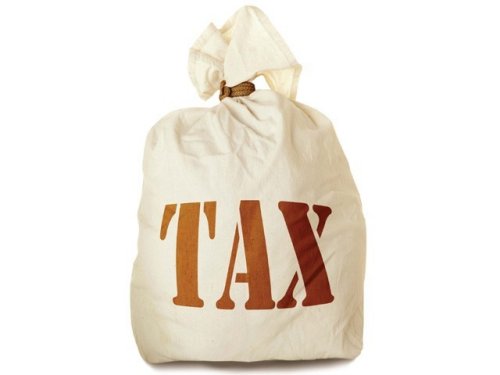Poor Management Deprives Lao Govt Of Taxes
A large amount of revenue from taxes and tariffs has been lost due to poor management of the financial system and a lack of cooperation from business operators.
Speaking to media during the annual government meeting with provincial governors earlier this month, Minister of Finance Mr Phouphet Khamphounvong said most of the taxes lost were those levied on imports and exports including vehicles and petrol.
In addition, the government is deprived of revenue due to its tax exemption policy for foreign investors, he said.
This means the government missed out on taxes amounting to 1,200 billion kip in fiscal year 2011-12 and 1,300 billion kip in 2012-13 according to the customs sector, Mr Phouphet said.
Revenue is also lost because some businesses import goods illegally, while customs officers do not manage their work properly. In addition, many traders try to avoid paying tax and do not meet their obligations to the government in this regard, he added.
He cited the example of an importer buying a Toyota Vigo costing US$30,000 but registering it as being valued at only US$20,000 so that less tax would have to be paid.
In the area of exports, the government is also losing revenue from the sale of natural resources, particularly wood products, Mr Phouphet said.
“We have collected almost US$20 million in taxes on timber exports but Laos has actually sold wood products to neighbouring countries worth hundreds of millions of dollars a year,” he added.
Some authorities cooperate with traders in the illegal export of wood products, included protected wood species.
The government has passed the Forest Law and other regulations on natural resource management to protect the country’s forests but compliance is largely lacking, Mr Phouphet said.
Other revenue is lost through inadequate tariff collection and many businesses find ways to avoid paying customs duty, which further shrinks the government’s budget.
Some businesses have registered in Vientiane but also operate in other provinces. When Vientiane authorities ask them to pay duty on goods, they claim they have already paid it at another location. Conversely, when provincial authorities ask them to pay, they say the duty has been paid in Vientiane, Mr Phouphet said.
The government is also suffering from the inadequate collection of land taxes, especially those levied on land concessions, land trading and land transfer.
There are many mining companies carrying out surveys and excavations in Laos but they pay only a small amount in taxes because land concession fees are low and inspection is lax.
However, Mr Phouphet said the finance sector is working to collect sufficient revenue to meet the target each year and to ensure the budget is sufficient to pay officials’ salaries and allowances.
In fiscal year 2011-12, the finance sector bolstered revenue collection by about 20 percent over the previous year, but this year expenditure increased by about 40 percent.
To ensure the government’s coffers are filled, the Ministry of Finance will improve its operations by using new technology and encouraging greater responsibility and coordination between various sectors in both private and government bodies.
As suggested by the government, the ministry has set up a taskforce committee to monitor the macro-economy and ensure that revenue collection reaches the set target.
Source: Vientiane Times

